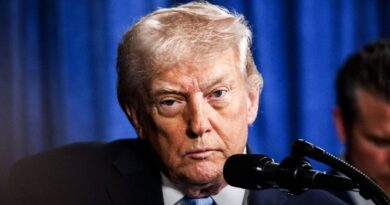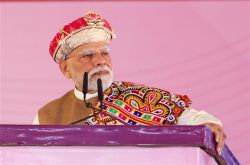U.S. Pushes G7 to Escalate Economic Pressure on India and China to Curb Russian Oil Purchases
U.S. Urges G7 to Impose Heavy Tariffs on India, China to Halt Russian Oil Purchases Amid Ukraine Conflict
Washington: In a bid to intensify economic measures aimed at ending the ongoing war in Ukraine, the United States has called on its Group of Seven (G7) allies to impose stricter sanctions and tariffs on nations purchasing Russian oil, specifically targeting India and China. The U.S. Department of the Treasury issued a statement on Friday, September 12, 2025, emphasizing the need for a coordinated effort to cut off revenue streams that fuel Russia’s military actions.
U.S. Treasury Secretary Scott Bessent and Trade Representative Jamieson Greer underscored the urgency of unified action in a joint statement, saying, “Only by collectively targeting the financial lifelines of Russia’s war efforts can we exert enough pressure to halt the conflict.” The statement highlighted commitments from G7 nations—comprising the United States, Canada, France, Germany, Italy, Japan, and the United Kingdom—to amplify sanctions on countries buying Russian oil.
This push follows the U.S.’s recent decision to impose a 50 percent tariff on Indian goods, a move that significantly outpaces the 30 percent tariffs applied to Chinese imports and the less than 20 percent tariffs on goods from countries like Vietnam and Bangladesh. The steep tariffs on India have sparked concerns about potential job losses in labor-intensive sectors and have strained trade negotiations between Washington and New Delhi.
In a recent Fox News interview, U.S. President Donald Trump acknowledged the diplomatic fallout from the tariffs, stating, “India was Russia’s biggest oil customer, and imposing a 50 percent tariff wasn’t easy. It’s caused tension, but it’s a necessary step.” Trump emphasized that the Ukraine conflict is primarily a European issue but maintained that decisive action is critical to pressuring Russia.
India, however, has remained steadfast in its stance on continuing to purchase Russian oil, citing economic necessity. As the world’s third-largest crude oil consumer, India relies on imports for nearly 88 percent of its oil needs. Russian oil, often available at a discount, has saved India significant foreign exchange reserves over the past three years. Indian Finance Minister Nirmala Sitharaman recently addressed the U.S. tariffs, noting that recent Goods and Services Tax (GST) reforms, including simplified and reduced tax rates, would help mitigate the impact. She also affirmed that the Indian government is taking steps to support industries affected by the tariffs.
The G7 discussions, led by Canadian Finance Minister Francois-Philippe Champagne, also explored using frozen Russian sovereign assets to fund Ukraine’s defense efforts. While the G7 has agreed to accelerate these efforts, the proposal for tariffs as high as 50 to 100 percent on Indian and Chinese goods has met with mixed responses. Some European Union nations, wary of economic repercussions and ongoing trade talks with India, have expressed hesitation, advocating instead for alternative measures like tightening sanctions on Russian energy exports.
As the G7 continues to deliberate, the U.S. remains firm in its call for collective action, framing the tariffs as a critical tool to pressure Russia into peace negotiations. The outcome of these discussions could reshape global trade dynamics and further complicate relations with major economies like India and China.




